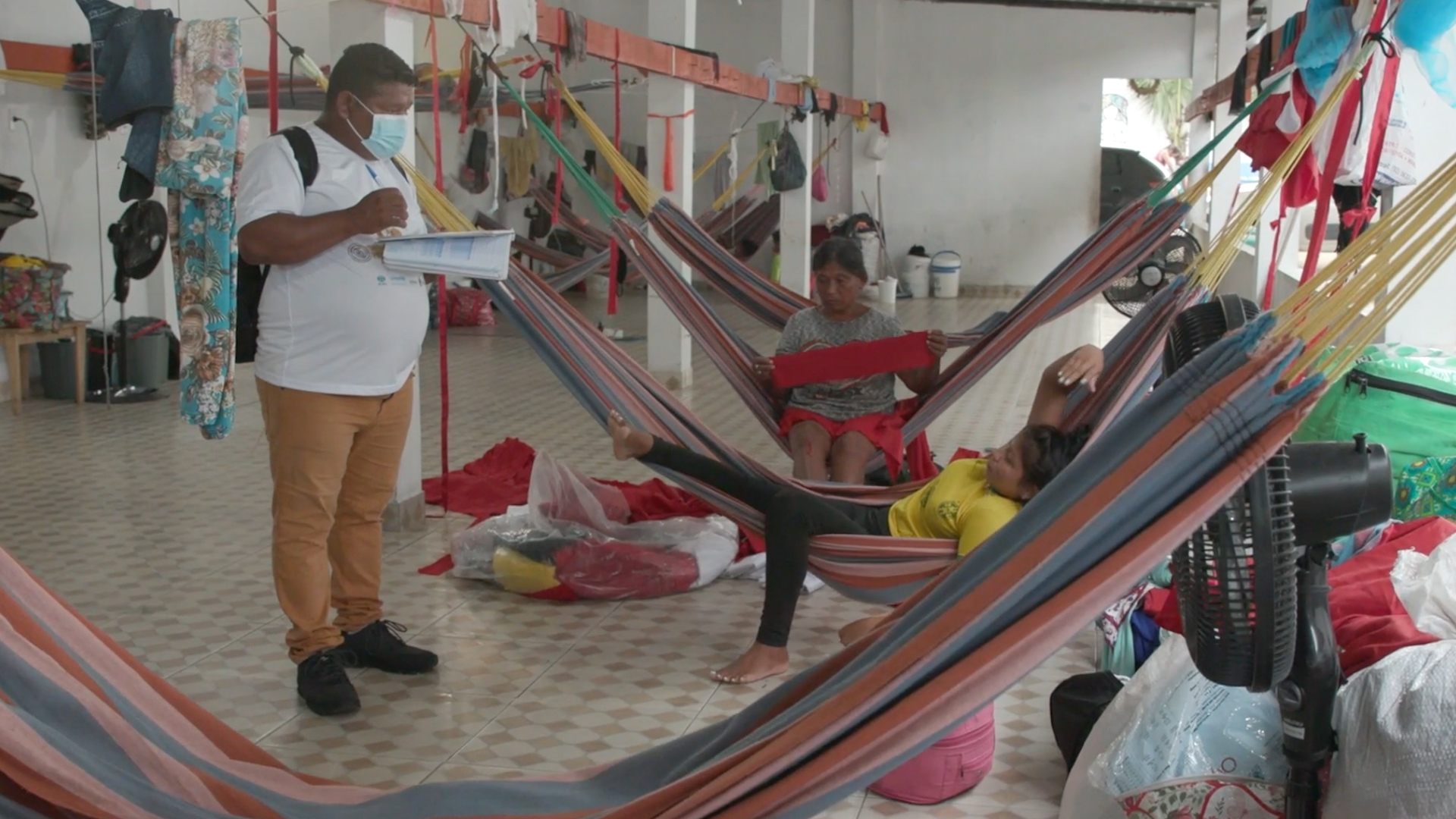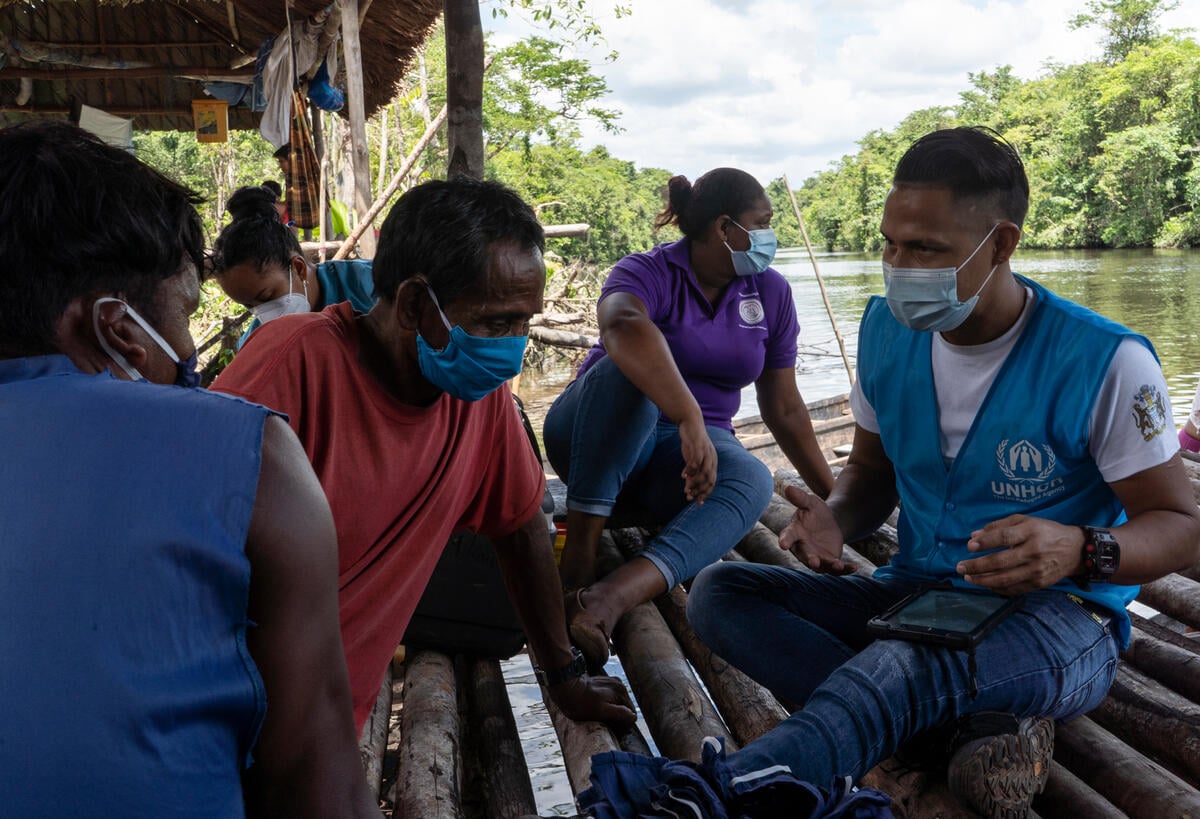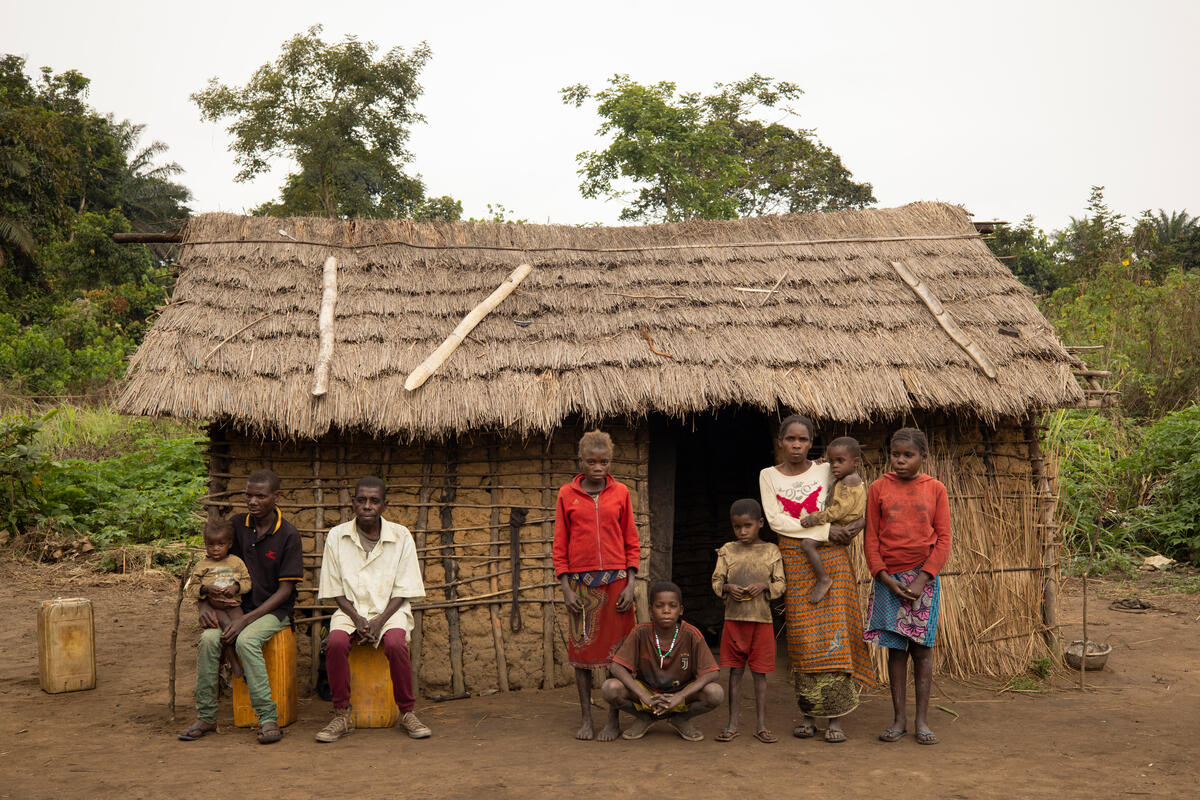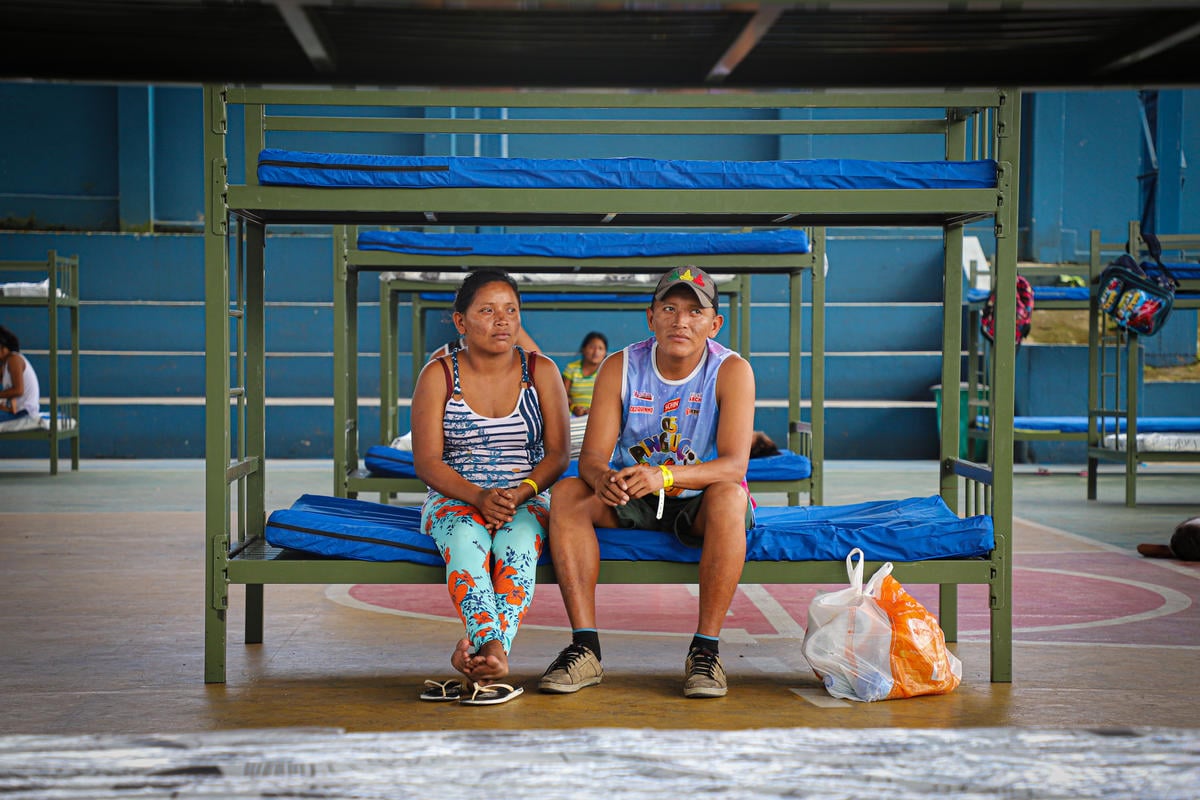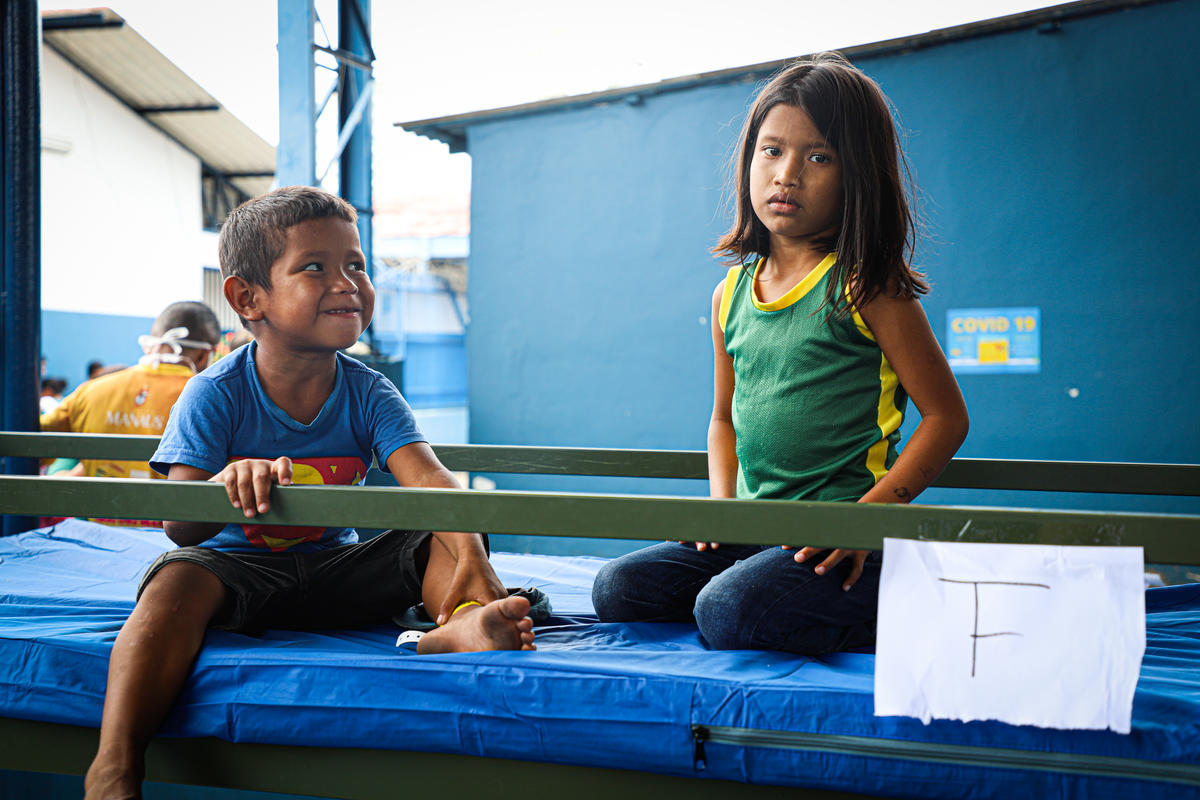Extending UNHCR's reassuring presence to an indigenous community in Colombia
Extending UNHCR's reassuring presence to an indigenous community in Colombia

APARTADÓ, Colombia, Dec 14 (UNHCR) - A rickety foot-bridge spanning a fast-flowing torrent marks the end of the dirt road that takes you to the Emberá-Catío reservation of Ibudó, in the north-western Colombian region of Urabá, close to the border with Panama. From there on, you have to walk. The humidity, the heat and the mosquitoes make walking along the winding jungle trails very strenuous. You have to hack through thick rainforest vegetation and wade ankle-deep in mud through swamps and streams. Guerrilla groups opposed to the Colombian government are known to operate in the zone.
Last week a UNHCR team, led by the Representative in Colombia, Roberto Meier, undertook the hazardous trip in order to visit the indigenous settlement of Las Playas, where on the night of December 6, a group of unidentified armed men shattered the community's peaceful routine, murdering, without warning or apparent reason, three indigenous leaders.
"They asked for the three leaders and, when they came forward, led them to a riverbank where they killed them with machetes," a local resident told the UNHCR team. The small community of some 300 persons belonging to the Emberá-Catío ethnic group had never received any specific threats from any armed group before.
Two of the murdered men were brothers, and the third was their brother-in-law. "It was very sad to see the wife of one of the murdered men standing there, pregnant, with one baby in her arms and a small child clinging to her legs," said the UNHCR Representative. "In the past this community received indigenous people fleeing violence in other parts of the reservation, now they are at risk of becoming displaced themselves."
The UNHCR team heard how fear has taken hold of the community and even begun to spread to other indigenous communities in Urabá. "Before leaving, the armed men said they would be back. We are very scared, especially at night," said a relative of the murdered men, "we are afraid even of tending our plots."

UNHCR has been supporting the community of Las Playas through occasional visits and the organisation of a documentation campaign with the National Registration Office. The campaign took place only a week before the killings. The indigenous community of Las Playas belongs to the Indigenous Organization of Antioquia (OIA), which has been supported by UNHCR through various projects, including a project to reduce domestic violence among indigenous communities in Urabá. UNHCR has pledged to visit Las Playas regularly and to closely monitor the situation of the indigenous communities in order to extend its protection to them.
"What impressed me the most was the people's strength and fortitude," said Meier. "While we were there, the mother of two of the men killed spoke to the community and told them: 'They have killed our people, but that should not stop us from carrying on with our lives and responsibilities. What happened has happened, but what we will do from now on is what matters.' As UNHCR we have a duty to ensure that these people benefit from our protection."
By William Spindler
UNHCR Colombia

